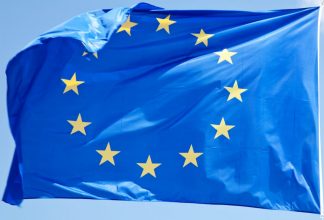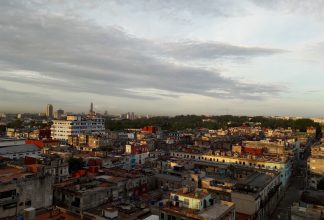A Dialogue with Cuba is Essential
Letter #19 by Juan Adolfo Fernández Saínz.
In July 2019, Civil Rights Defenders invited Cuban human rights defenders and civil society organisations to contribute with texts on how the European Union should work towards Cuba. This letter is written by Juan Adolfo Fernández Saínz.
A Dialogue with Cuba is Essential
But we can expect very little from it. The key to the problem is the criminal nature of the Cuban regime. The Communist Party’s dictatorship has associated itself unlawfully with the national sovereignty. Any criticism of its failed system, even from Cuban nationals within and outside the national territory, is seen (conveniently) as an attack against the nation and the country and this justifies any abuse under the name premise: “in defence of the homeland.” Nothing that threatens the regime is tolerable in their point of view. They are willing to resort to the use of force to avoid any radical change, and have granted themselves the legal instruments to do so.
It is sufficient to read their own constitution to understand their position, which is totally contrary to human rights.
The regime always shows itself to be open to dialogue, but it is intransigent at all costs in terms of results. Talking according to their terms has been a waste of time, so any dialogue has to be maintained but moving in a direction toward concrete results:
Europe can start by asking for the release of all political prisoners. The regime is going to allege that they do not exist, so Europe should therefore publicly acknowledge all Cuban political prisoners.
The next step would be to publicly acknowledge all opposition organisations within Cuba whose work towards the defence and protection of human rights. This is very basic, since us Cuban opponets have never even been able to have an office. Our meetings have always been held in our own homes. We always try to enter our organisations in the registry of associations, but we never get a response. If the international community wanted to help an opposition organisation in Cuba, it would not be able to do so lawfully because, since it is not officially recognised, it is as if it did not exist.
By way of example, if any European government wanted to help an association of farmers in Thailand, it would not have to wait for the Thai government to give its permission because their associations have their own corporate identity. The members of the opposition in Cuba are condemned to live as ghosts because of the lack of recognition.
The EU could assist the Cuban private sector with resources, visits, and encouragement, while maintaining the dialogue. The regime will refuse and will present this initiative as an attack against its national sovereignty. Europe would have to publicise its intentions to help the Cuban private sector by using concrete examples and publicising the regime’s refusal to allow such help to be provided.
Public recognition of the independent press and union associations. Plan to support those who have maintained an earnest and committed trajectory on human rights. Given the regime’s refusal, a public explanation of Europe’s intentions and the Cuban regime’s refusal. Each one of those steps should be accompanied by information corresponding to European and international public opinion.
The Castro regime has always been very aware about its public image and has proposed living as just another state and to be readily accepted as such. If they refuse, as they have up until now, to put the changes requested by Europe into practice in Cuba, as well as in a good portion of the world, in matters concerning human rights and economic support for the newly emerging private sector, then they should at least feel the deterioration of their image; and within Cuba, those Cubans who have access to information should understand that the Cuban regime’s conduct is not accepted by a substantial portion of the international community.
At that point, we can start talking about free and just elections, starting with freedom of the press, freedom of expression, freedom to associate, and party plurality, each step being accompanied by transparency in the relationships between Europe and Cuba.
This plan is not a guarantee of success, but at least it does not reward despotic and tyrannical behaviour.
Juan Adolfo Fernández Saínz, Cuban American National Foundation
About Juan Adolfo Fernández Saínz
Juan Adolfo Fernández Saínz is a translator, and a former political prisoner and member of the Group of 75 individuals imprisoned during the Black Spring of 2003. He was sentenced to 15 years in prison; he served seven years and was exiled to Spain in 2010. He works at the Cuban American National Foundation, which is based in Miami.

